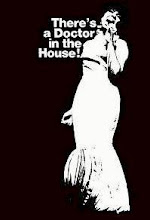Her first Westbound LP (WB 2012) set the tone for most of LaSalle's later career. Recorded in Memphis (see photo below) and arranged by Willie Mitchell and Gene Bo-Legs Miller (yes, it is actually written »Bo-Legs« in the sleeve notes), the album embodies the post-Stax »new« Memphis Soul of the early '70s which is bound up with the names of Ann Peebles, Al Green and many others. Production credits are to Crajon Enterprises, the company LaSalle was running with her husband Bill Jones. What is noteworthy above everything else, however, is that LaSalle wrote most of her material, thus being one of the few female singer-songwriters around in soul music.
But »soul music«, especially as that term was used in the early '70s, her music was not. So what was it, then? Denise LaSalle spoke at length about that in an interview with David Freeland. This is what she had to say:
[W]hen you go to the Grammys, who they put in a blues category is going to be KoKo Taylor, Etta James, and people I ain't never heard of before. People that never seen a record on a major radio station in their life. And they're in the Grammys. And then they'll put a white girl up that ain't nobody ever heard of but white folk. And KoKo Taylor performs mainly to white audiences. They'll pull these people and put them together and they'll ignore me over here.
Then they go to the soul music; I'm ignored there. Then we'll go to the pop music; I'm ignored there. You go to R&B, I'm ignored there.
So what am I? I'm nowhere. So I say, "Well, okay, so I'm not a blues singer, y'all say." But the R&B people say, "You're a blues singer." And then the blues singers say, "You're not a blues singer, you're R&B." So I'm here in this middle of nowhere. And I say, "OK. I'm a soul-blues singer." I'm a soul-blues singer. Why can't I get someone to see that? And every time I'm interviewed I say, "I am a soul-blues singer." I cannot get people to recognize that terminology. Give me a category. I deserve it.
(Quoted from D. Freeland: Ladies of Soul, Jackson 2001, p. 35 f.)
And that's not all. Talking to Freeland, LaSalle emphasized that country music is what really influenced her, and country has always remained her favorite music. She said as much in a number of other interviews. Lately she put it a bit differently, yet she wouldn't diminish the role of country music: The Blues and Gospel is what really got me. I should say it is my favorite. But to be honest with you, when I write and listen for my own writing mood, it is Country music. I'm sorry. I disappoint a lot of people. Country music has been with me since the beginning of my life. I would lean in that direction (see Monica L. Yasher: »Sitting Down with Denise Lasalle & a Cup Of Coffee«, May 16, 2011).
On her first Westbound album much of that is not yet completely evident. »Trapped By A Thing Called Love«, »Heartbrea- ker Of The Year« and »Catch Me If You Can« are on the pop-side of soul. But there are some tracks which, in hindsight, clearly show the direction LaSalle would be moving towards in the following years: soul-blues, as she wanted to have it. »Good Goody Getter« and »Do Me Right« would qualify, and so do »Now Run And Tell That« and »Keep It Coming«. »Now Run And Tell That« was released in January '72 on Westbound # 201, and »Keep it Coming« had been the B-side of Westbound #182:
Denise LaSalle: »Now Run And Tell That« / »Keep It Coming« from the Westbound LP # WB 2012 (1972):

















No comments:
Post a Comment